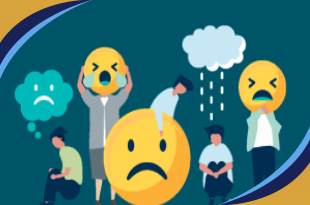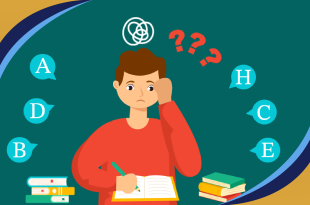If your child is suffering from a mental condition and is in need of mental health assistance, you should consult a child psychiatrist. Psychiatrists who specialize in pediatric psychiatry are known as child psychiatrists, who are able to treat any type of mental conditions that are common in children and adolescents. Orange Coast Psychiatry hosts an army of top child psychiatrists, who will be at your service for consultations about your child’s mental condition. We’ll guide you on how and when it becomes paramount to get an appointment with a child psychiatrist specialist.
What is a Child Psychiatrist?
It is a type of psychiatrist that focuses on providing psychiatric assistance for children and adolescents. They differ from child psychologists. While their services can overlap, the terms of their titles are used interchangeably and both of them emphasize one specific type of treatment and technique.
A child psychiatrist pivots more toward mental health medication management and a child psychologist’s services take a tilt toward psychotherapy but both can use either treatment to reach their end goal of treating a child or a young adolescent successfully. The differentiation might help you find a child psychiatrist that is good and suitable for your child’s treatment.
Learn More: How to Help Someone With Bipolar Disorder?
How does Child Psychiatry work?
Child psychiatrists will focus on treating a child’s mental condition by looking at symptoms of that condition and also assessing the behavioral, social, and psychological aspects of a child’s life and personal history.
To ensure a comprehensive assessment is made of the child, a child psychiatrist will go through and initiate a range of standard operating procedures that are part of pediatric psychiatry. They will:
- Interview family members
- Inquire about the child’s development
- Contact the family physician and healthcare professionals
- Assess a child’s life at the school or college
- Do certain tests or make special assessments
This might take several visits and may also require certain permissions and consent from the stakeholders involved. Afterward, a child psychiatrist will make a diagnosis of the mental condition of the child and devise a treatment plan accordingly.
What Type of Mental Conditions Does a Child Psychiatrist Treat?
While there is a range of different mental disorders that a child psychiatrist treats in children, which are also present in adults. There are some conditions that are more common in children and the onset of the symptoms begins in the earlier years. Some of the conditions a psychiatrist of children might treat are:
- Attention-Deficit/Hyperactivity Disorder (ADHD)
- Mood Conditions Such as Clinical Depression or Bipolar Disorder
- Eating Disorders like Bulimia Nervosa or Anorexia Nervosa
- Conduct Disorders
- Anxiety And Other Conditions That Relate It
- Obsessive Compulsive Disorder (OCD)
- Autism Spectrum Disorder (ASD)
- Schizophrenia
Is Your Child in Need of Psychiatric Help?
While expert opinion is necessary, it is also your responsibility to look out for any symptoms of an underlying mental condition in your child or children if you suspect there might be something wrong with them. This should especially be true when there is a family history of mental conditions. When you see your child’s condition worsening through the onset and the steady rise of symptoms and if these symptoms finally interfere with the day-to-day route of your child or children, you should promptly seek treatment.
While early intervention is the right time to take your child to a psychiatrist, it is better to be late than never seek treatment for your child. They will assess how and if they are coping with a mental condition and what sort of trauma, be it psychological or physical, or even a major life change such as something like divorce, is leading to the birth of a mental condition. But still, you should look for if your child has these symptoms:
- Excessive Tantrums and Anger Outbursts
- Absenteeism at School
- Sadness
- Suicidal Thoughts
- Substance Abuse
- Poor Grades
- Trouble Having Good Sleep
- Problems with Food and Body
- Disobedience and Problems with Conduct
Why Is Child Psychiatry Now Necessary for Child Rearing?
Child psychiatry has become paramount to child upbringing because of its importance to the mental health of children. The ongoing need for child psychiatrists arose with the rising cases of mental health conditions. This rise can especially be attributed to the rise of social and digital media, which has amplified the problems with mental health in children who are already at risk. In that context, finding a treatment plan that is personalized to the needs and requirements of a child suffering from an underlying mental condition is of utmost importance.
The growing demand for such a specialized domain is not being met, and finding proper treatment related to it is not easily accessible, especially with the rising healthcare costs. The financial and awareness investment that is put into pediatric care, especially pediatric psychiatry is underwhelming. It is nevertheless important for children to be treated, as otherwise consequences will seriously interfere with the seamless upbringing and thoughtful development of a child.

Where To Look for A Suitable Child Psychiatrist
The best children’s psychiatrist is the one who is not only suitable for the child but one who is well-versed and capable of formulating different types of treatment plans that cater to the needs and requirements of any child affected with a mental disorder.
While psychiatrists can be found in different settings, for example, in schools, hospitals, and even individually in their own clinics and different settings, e.g. as a head psychiatrist at a school you have to make an effort to find the one that is the most suitable for your child and is capable of finding a suitable treatment plan for that child.
There are many ways you can do that! To find a child psychiatrist who is suitable, you can go through specific directories that relate to psychiatric associations, where you can filter through different child psychiatrists. This is a good starting point and sometimes you can always use platforms that are specifically tied to the provision of psychiatric services, with experts that specialize in child psychiatry.
Treatment
Once a diagnosis has been made and treatment has been laid out, psychiatrists are all set to provide the care a child needs with suitable mental health attention. But what it partakes to know if a specific form of treatment is suitable for a child, is dependent on how much you know about it too. While a psychiatrist can explain everything to you, it dawned on us that it can be very beneficial if you do some homework on your side too. Treatment will not help your child if you are not focusing on the treatment yourself, even if your child is being treated by one of the best children’s psychiatrists. We’ll list some of the most common treatments that are used by a child psychiatrist for your knowledge.
Psychotherapy
This is the therapy that is most commonly used by child psychologists and is affectionately called “The Talk Therapy” by doctors, psychologists, and patients alike. This doesn’t mean that psychiatrists will not use this one. They will in fact use and combine it with other forms of treatments such as medication, which are often very beneficial and complement each other effortlessly. There are different forms of psychotherapies in existence but the most common ones that are used for treating children are:
- Cognitive Behavioral Therapy (CBT): A type of psychotherapy that focuses on changing the negative thought processes that govern behaviors that define certain mental disorders.
- Family Therapy or Interpersonal Therapy: A kind of therapy that tries to uncover if certain interconnected relationships might be negatively affecting a child. Members of the family or even the extended family might also be involved in the therapy itself. It can be important in identifying if a child is being physically or mentally abused or not.
- Psychodynamic Therapy: A “talk therapy” that can use playtime, toys or art to come to terms with past experiences.
Medication
Drugs and medication can be an important part of a comprehensive treatment plan that also encompasses other treatment methods like psychotherapy or counseling. Children sometimes have to take medication for a mental condition such as Attention-Deficit/Hyperactivity Disorder (ADHD) even when parents or legal guardians are against taking medication but it is nonetheless an important part of treating mental health conditions. Although the foremost question should always be if a child can be treated without the medication, when it becomes absolutely necessary to use it, there are some recommendations.
Recommended Medication For Children
Although something like ADHD has a specific recommendation, with Methylphenidate being the most common one, psychotropic medicine can be prescribed for other mental conditions such as autism, obsessive-compulsive disorder (OCD), or depression. Something that works well for adults might not work for children. The medicine that is prescribed to your children can also be an antidepressant, mood stabilizer, stimulant, anti-anxiety medicine, antipsychotic, or a combination of these.
Dosage
It is all dependent on how well the drug works or how suitable it is for the child taking it. The dosage and the type of medicine that could be prescribed by a child psychiatrist specialist to a child varies based on the progress of the medication treatment. If the symptoms subside but the medicine is not working as fast as it should be, then the dosage must be increased. Suppose the child takes a specific medicine that also has a high dose, but is developing side effects such as the development of a rash, changes in appetite, behavioral changes atypical to a child, or something more dangerous like suicidal thoughts. In that case, dosage must be stopped or decreased and serious attention to those symptoms should be given. A psychiatrist of children will review the progress of the dosage and the type of medicine prescribed and will re-prescribe medication according to that progress.
Learn More: Understanding The Different Types Of Trauma
How Can I as a Parent or Guardian Help My Child?
There are certain ways you can help your child after a diagnosis and complement the care provided by an expert in childhood psychiatry:
- Educate Yourself About Your Child’s Mental Illness
- Consider Family Therapy To Ensure Comprehensive Care Is Provided
- Take Advice From The Psychiatrist On How To Conduct With Your Child
- Consult With School Too On How To Handle Your Child’s Mental Illness
- Try to Relax Yourself And Do Fun Activities With Your Child
- Compliment Your Child For Their Strengths and Positives
- Enroll In A Training Program For Parents Who Are Raising Children With Mental Conditions.
Conclusion
You now know enough about a child psychiatrist to independently make a decision about finding a suitable one for your own child. If you suspect that your child is suffering from an underlying mental condition, treatment should be promptly sought. Harmful consequences will lay ahead if your child’s mental condition is left untreated, creating problems for you and your child. Treatment that makes the best of different methods like a suitable psychotherapy and a prescribed medication plan can help your child heal. Orange Coast Psychiatry has a host of top child psychiatrists who are ready to dive into the treatment of children and help you heal from a mental condition.














